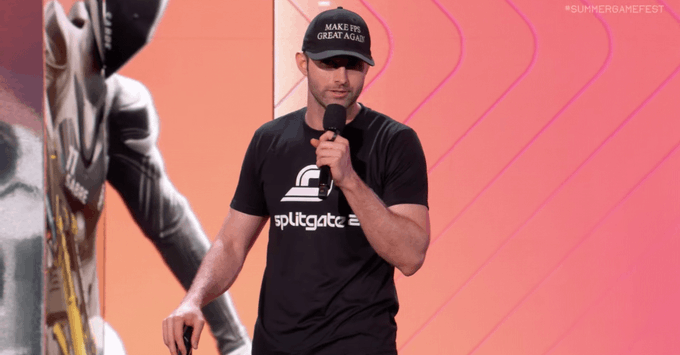Why the “Make FPS Great Again” Hat Sparked a Gaming Backlash
When Ian Proulx, CEO of Splitgate 2 developer 1047 Games, walked onstage at Summer Game Fest wearing a “Make FPS Great Again” hat, the gaming community didn’t see it as a cheeky meme — they saw controversy. The phrase, clearly riffing on Donald Trump’s infamous slogan, instantly drew criticism across gaming forums, social media, and even industry press. While the intention may have been to grab attention for Splitgate 2, the result was a divided fanbase and questions about the tone-deaf nature of the stunt. In this blog, we unpack what happened, why it matters, and what it says about the intersection of gaming, marketing, and community values.
Splitgate 2 Backlash: What Went Wrong with the FPS Slogan?
Proulx initially stood firm, insisting that the slogan wasn’t political and should be taken “at face value.” However, gamers didn’t buy it. The phrase “Make FPS Great Again” echoed sentiments that many believe are exclusionary, and for a community that values inclusivity, the stunt felt careless. Instead of building hype for Splitgate 2, it turned attention away from the game and toward a controversy that didn’t need to exist. Critics argue this kind of “shock marketing” undermines trust and ignores the real progress in FPS games driven by diverse voices and innovation — not nostalgia laced with polarizing politics.
Ian Proulx’s Apology: A Step Forward or Too Late?
Days after doubling down on the hat, Proulx reversed course. Posting a short video on X (formerly Twitter), he apologized with a simple message: “No excuses, I’m sorry.” He explained the team was desperate to stand out and believed the meme-like hat would do the job. “We saw this as a meme that was kind of stating our truth,” he said. But the truth is, marketing that disregards community sentiment can’t be brushed off as a joke. His apology felt more like damage control than genuine reflection, leaving many wondering whether lessons were truly learned.
What This Means for Game Marketing and Community Trust
In today’s gaming landscape, player communities aren’t just passive consumers — they’re vocal, invested, and quick to respond to actions that feel out of touch. Brands and developers must understand that authenticity and cultural sensitivity matter just as much as gameplay mechanics. The Splitgate 2 hat incident is a clear example of how marketing missteps can snowball when trust isn’t prioritized. Developers can’t afford to treat their audiences as afterthoughts — especially when players are the ones who sustain these games long-term. Respect is a requirement, not a marketing variable.

